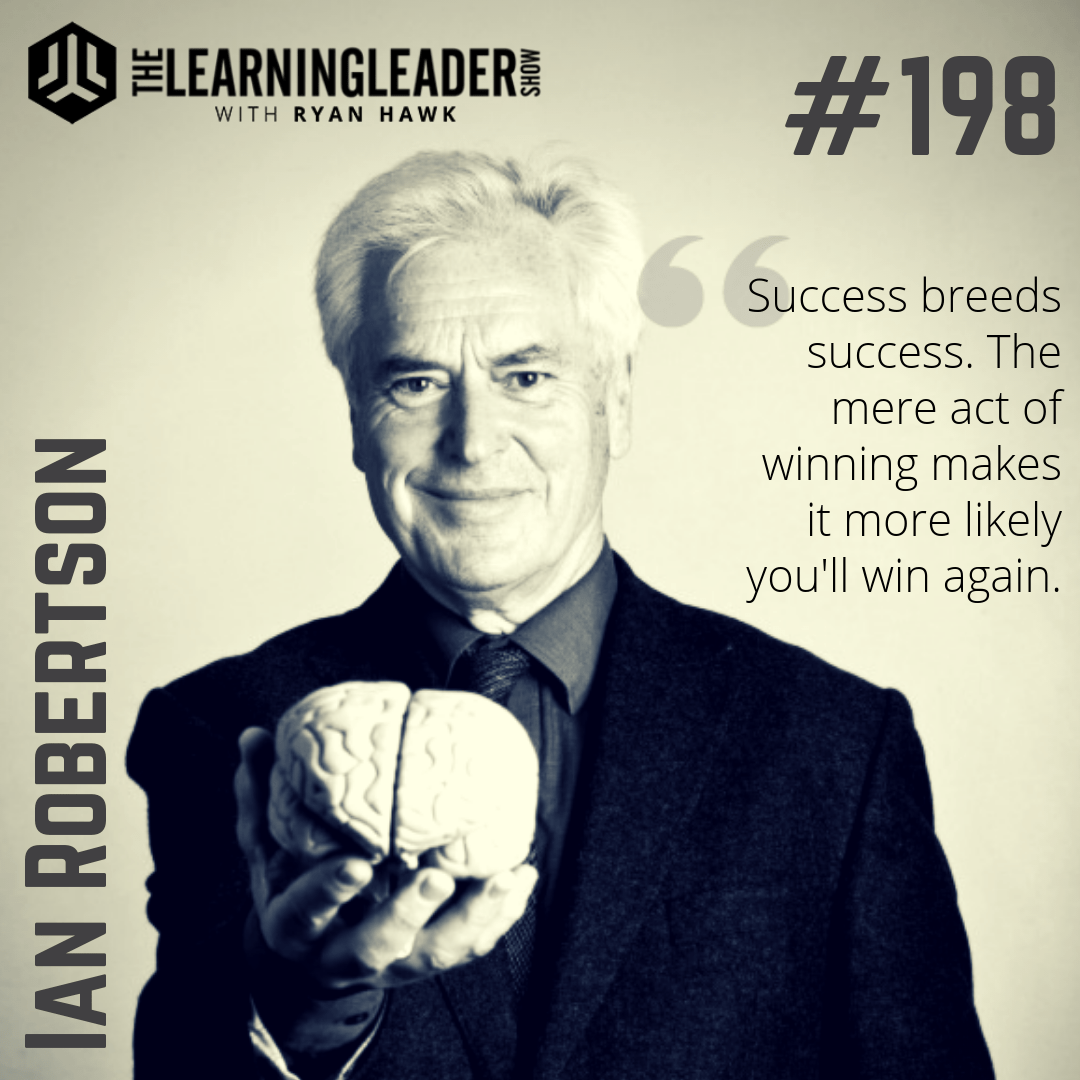Episode 198: Ian Robertson – The Winner Effect — The Stress Test
Ian Robertson is a clinical psychologist and neuroscientist with a unique ability to apply his research to the pressures of everyday life. His previous books, Mind Sculpture, The Mind’s Eye and The Winner Effect, have been translated into many languages and he is widely recognized as one of the world’s leading researchers in neuropsychology.
Ian taught mathematics in Fiji before training as a clinical psychologist in London and specializing in neuropsychology. A leading international researcher, he has written widely about how our brains are changed by experience, and his popular books Mind Sculpture and Opening the Mind’s Eye brought his scientific research to a wide audience.
The Winner Effect: The Neuroscience of Success and Failure. In this he shows how winning and losing shape our minds and brains more fundamentally than any drug and how our destinies depends on how we respond to success and failure.
Episode 198: Ian Robertson – The Winner Effect AND How Stress Can Make You Better
Subscribe on iTunes or Stitcher Radio
The Learning Leader Show
“Success breeds success. The mere act of winning makes it more likely you’ll win again.”
In This Episode, You Will Learn:
- Common themes of leaders who sustain excellence:
- Ability to set goals — Not too big but not too easy
- Self belief — Self Confidence
- Extrinsic vs. Intrinsic motivation
- There will always be someone better than you. The focus should be on improving your own self
- Why Elon Musk and Steve Jobs transcend the norms
- “A lot of people suffered in Steve Jobs desire to build those products”
- Steve and Elon are anomalies, not the norm
- “To be #1 in the industry is NOT a good goal”
- What happens to lottery winners a year later? — “Ashes in your mouth”
- How the brain is complex
- What it means to be a bad dad — Pablo Picasso
- “Success conveys power… Power changes your brain. It creates narcissism”
- Bad Dad’s “hide the ladder.” They get up the tree, then do not show others how they got there.
- “Keep a ladder down for others”
- “They must see that it’s not God Like… That they can do it”
- Study: Kids — Those who believe they can do better and influence their IQ, do better in school.
- With fixed mindset, failure hurts the ego
- How can stress make you stronger?
- Tiger Woods example — Being nervous before a competition is a good thing (with the right mindset)
- If you have a big presentation and you say to yourself, “I’m nervous.” You’ll do worse than if you say “I’m really excited.”
- Adopting a challenge mindset, visualizing the reward
- “Create a challenge mindset”
- If you’re nervous, don’t say “I feel calm.” That’s not true and your brain knows it. Instead, say “I’m excited.” Use that energy for good.
- Using the Joe Buck “So What” method — It can help with irrational fear of disapproval
- Can too much happiness be bad for you? — Yes, over protecting our children can be bad. They need to experience adversity.
- “Leaders by definition have to have a vision.”
“Success conveys power… Power changes your brain.”
Continue Learning:
- Follow Ian on Twitter: @ihrobertson
- Read: The Winner Effect
- Connect with me on LinkedIn
- Join our Facebook Group: The Learning Leader Community
- To Follow Me on Twitter: @RyanHawk12
You may also like these episodes:
Episode 078: Kat Cole – From Hooters Waitress To President of Cinnabon
Episode 071: Nate Boyer – Green Beret, Texas Football, The NFL
Episode 179: How To Sustain Excellence – The Best Answers From 178 Questions
Episode 107: Simon Sinek – Leadership: It Starts With Why
Did you enjoy the podcast?
If you enjoyed hearing Ian Robertson on the show, please don’t hesitate to send me a note on Twitter or email me.
Episode edited by the great J Scott Donnell
The Learning Leader Show is supported by FreshBooks: FreshBooks is offering a 30 day, unrestricted free trial to my listeners. To claim it, just go to FreshBooks.com/Learning and enter LEARNING LEADER in the “How Did You Hear About Us?” section.


Leave A Comment